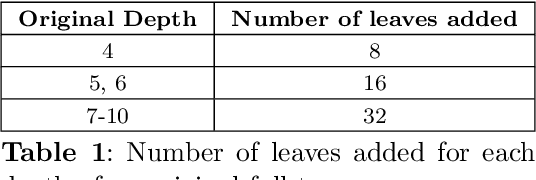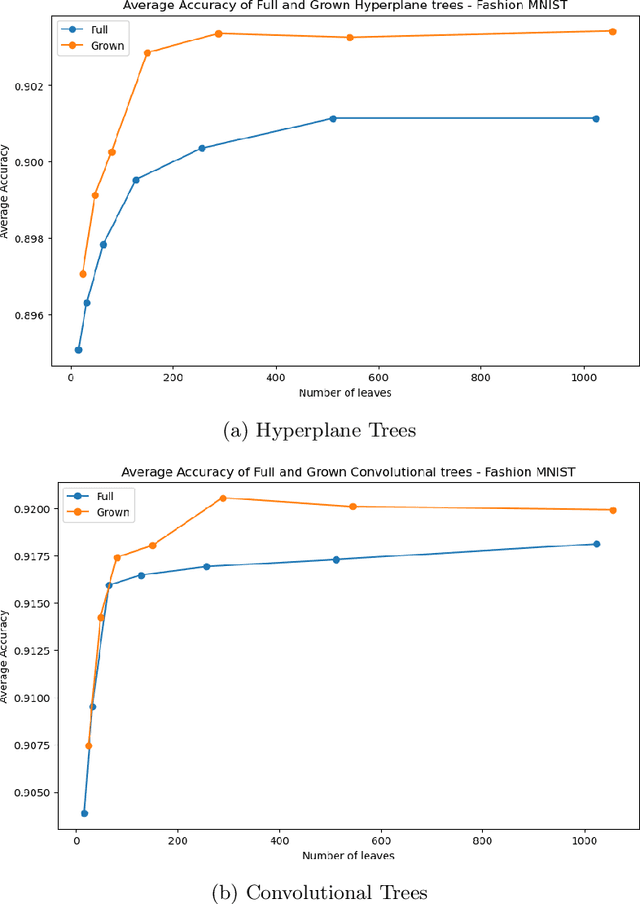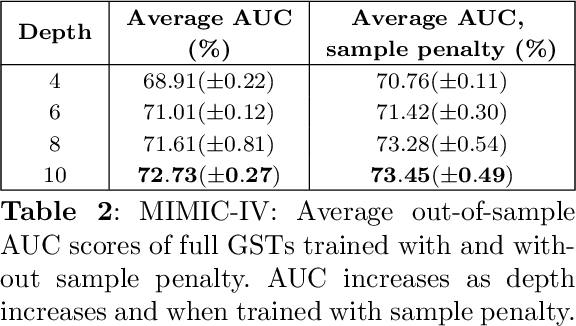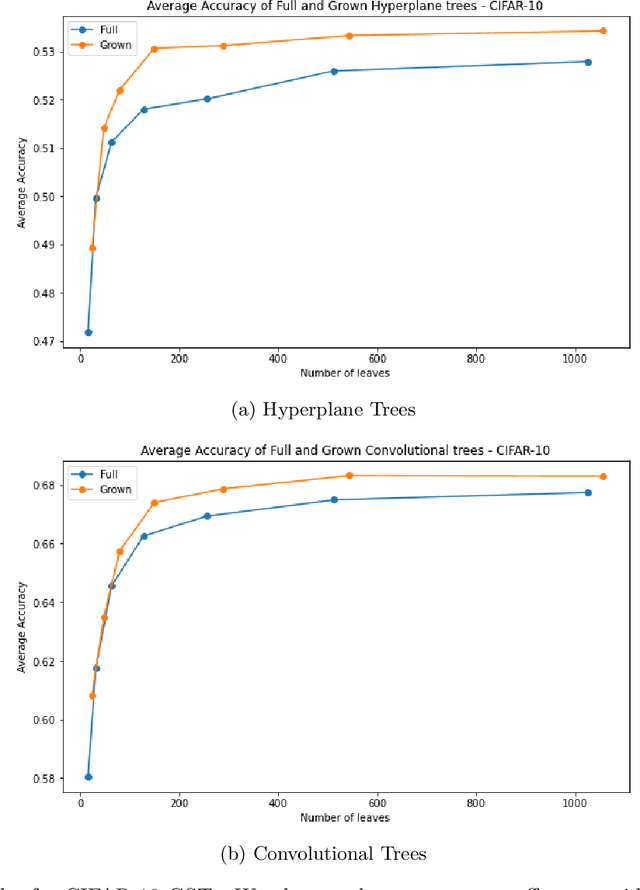Jiayi Gu
Deep Trees for (Un)structured Data: Tractability, Performance, and Interpretability
Oct 28, 2024



Abstract:Decision Trees have remained a popular machine learning method for tabular datasets, mainly due to their interpretability. However, they lack the expressiveness needed to handle highly nonlinear or unstructured datasets. Motivated by recent advances in tree-based machine learning (ML) techniques and first-order optimization methods, we introduce Generalized Soft Trees (GSTs), which extend soft decision trees (STs) and are capable of processing images directly. We demonstrate their advantages with respect to tractability, performance, and interpretability. We develop a tractable approach to growing GSTs, given by the DeepTree algorithm, which, in addition to new regularization terms, produces high-quality models with far fewer nodes and greater interpretability than traditional soft trees. We test the performance of our GSTs on benchmark tabular and image datasets, including MIMIC-IV, MNIST, Fashion MNIST, CIFAR-10 and Celeb-A. We show that our approach outperforms other popular tree methods (CART, Random Forests, XGBoost) in almost all of the datasets, with Convolutional Trees having a significant edge in the hardest CIFAR-10 and Fashion MNIST datasets. Finally, we explore the interpretability of our GSTs and find that even the most complex GSTs are considerably more interpretable than deep neural networks. Overall, our approach of Generalized Soft Trees provides a tractable method that is high-performing on (un)structured datasets and preserves interpretability more than traditional deep learning methods.
MKA: A Scalable Medical Knowledge Assisted Mechanism for Generative Models on Medical Conversation Tasks
Dec 05, 2023



Abstract:Using natural language processing (NLP) technologies to develop medical chatbots makes the diagnosis of the patient more convenient and efficient, which is a typical application in healthcare AI. Because of its importance, lots of research have been come out. Recently, the neural generative models have shown their impressive ability as the core of chatbot, while it cannot scale well when directly applied to medical conversation due to the lack of medical-specific knowledge. To address the limitation, a scalable Medical Knowledge Assisted mechanism, MKA, is proposed in this paper. The mechanism aims to assist general neural generative models to achieve better performance on the medical conversation task. The medical-specific knowledge graph is designed within the mechanism, which contains 6 types of medical-related information, including department, drug, check, symptom, disease, food. Besides, the specific token concatenation policy is defined to effectively inject medical information into the input data. Evaluation of our method is carried out on two typical medical datasets, MedDG and MedDialog-CN. The evaluation results demonstrate that models combined with our mechanism outperform original methods in multiple automatic evaluation metrics. Besides, MKA-Bert-GPT achieves state-of-the-art performance. The open-sourced codes are public: https://github.com/LIANGKE23/Knowledge_Assisted_Medical_Dialogue_Generation_Mechanism
 Add to Chrome
Add to Chrome Add to Firefox
Add to Firefox Add to Edge
Add to Edge